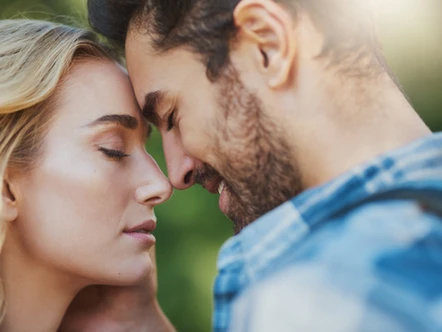First off, I’d like to take a moment to thank some of my most recent subscribers for joining A Writer’s Thoughts. I know I haven’t been posting much. Progress has been slow with some of my newer short stories. But today’s post falls under the category of my thoughts on life. I hope you find it helpful and please feel free to leave a comment.
*****
Loving people isn’t a simple thing. Love, in general, isn’t easy to begin with. There’s an intrinsic cost involved whenever we choose to love. An inherent risk that means we might get hurt. But, the most amazing thing about love is it’s not just a feeling. It runs deeper. It’s an active choice.
In my meditations, I’ve been learning the meaning behind this. It’s a difficult thing to grasp and as my thoughts turn to others, the peace I feel in my meditations becomes a brokenness that words cannot describe. I feel their hurts and pains, their struggles, and sufferings. I begin to identify with what they’re going through. Sometimes the impressions I get cut so deeply it brings me to tears.
It tears at my own emotional defenses and creates in me a vulnerability that I have no words for. Often, I find the questions “What am I seeing… what am I to learn… and how to do I respond?’ come out of this.
The answers to each aren’t always straightforward. Sometimes it’s a process. Something that takes time to grasp. Honestly, that’s a good thing, because if the answers were quick and simple, then the impact and meaning behind them would be lost.
Take love, for example. Society teaches that, or rather uses the word so callously. But if we were to really grasp it in all its forms, we would be more cautious about using it. We should never use the word love in casual passing, especially when it has so many applications. Yet we do.
We say we ‘love’ this thing or that, but do we really? Is it more and of a ‘like’, an appreciation of an object, person, place, or thing? If I were to say I love another person, am I ready for the responsibility that the word carries?
To stand with them through struggle? To give them a hand up when in need? To have their back when hell comes knocking at their door? Are each of us willing to pay the cost required?
I don’t mean romantic love either, which has an even deeper cost. That kind of love is the riskiest of all and most aren’t willing to pay the price. I dare say no one is up to the task. I don’t mean to sound cynical, far from it. Rather, what I mean is that real romantic, committed love calls for the highest price to pay. It requires a commitment beyond the self, beyond ego, and personal gain.
When I meditate, I hear one phrase repeatedly: Love the person for who they are, not for what they’ve done. Love them past the surface and outward judgements. Not as people see, but as your heart should see them.
I can’t tell you how difficult this is. People, in general, are hard to love in this capacity. We have our own struggles and personal demons. Often, those demons lash out at the first sign of compassion. Hurts often manifest like this at any hint of kindness because the world teaches us that there’s always a condition.
For some, love is nothing more than a transaction. An exchange or an agreement for some personal gain. For others, it’s a tool for control. They create an illusion so powerful of the idea that they think they know what it means. Not only do they convince themselves of it, but they skillfully persuade others that their expression of love is genuine and use it to gain control over that person.
It’s so sad, but happens often. Worse, when the structure of this breaks down, the real hell breaks loose. One or both parties begin to fight to control each other in order to restore the relationship. But as the fight for dominance carries out, the idea of love becomes more twisted and contractual. It gets more conditional. The compromises made by either party only stack the deck against a deepening bond. It becomes an ‘if/then’ agreement. If you do this, then I will do that. Usually, if the conflicts become resolved, the most dominant person if the relationship comes out on top while the other person ends up worse off than before. Truthfully, no one wins, and everyone involved has lost. The relationship between those involved can never be the same.
If true restoration were to take place, for the relationship to heal, a major change needs to happen with both people or all parties involved. Something that transcends the world’s ideas of contractual or conditional love and forgiveness. The parties involved need to take a hard look at one another and say: Okay, we have a problem. No amount of compromise will fix this if we keep trying to one-up each other for our own personal gain.
Often I don’t think we even realize that we’re trying to gain anything from the conflict, but often as humans, we tend to do just that. But if we come to the table honestly with the other person and let go of whatever grievance we have, I think that is a genuine expression of love toward another person. It’s quite liberating. Even if the other person doesn’t do the same, you at least are free of the conditional nature of that relationship. Again, I’m not talking about a romantic relationship specifically, though it could be.
But doing this can lead the way to a genuine dialogue that hopefully will heal whatever wounds have been opened. However, if it doesn’t, you again have done as much as you can. You’re no longer obligated to pursue anything with that person, though you might feel you are. You may still genuinely care, have concern, and love them, but at this point, you’re free.
Continuing to chase them will eventually cost you. It can even reignite past hurts or create new ones that will only cause more conflict later down the road. You may even end up using each other to fulfill a need within yourself, mistaking it for loving them. At this point, you’ve restored a contractual or conditional relationship and once again trapped yourself.
So what do I do with this? Like what’s your point?
I think to answer this; I need to go back to a statement I made earlier. Love the person for who they are, not for what they’ve done. Love them past the surface and outward judgements. Not as people see, but as your heart should see them.
None of us are perfect. We don’t always make the best choices and are often judged poorly for them. Do these choices make us bad people? Not really. I think, as a whole, we are all just imperfect beings trying to make sense of life. I also think there are people put in our path to be an assignment, someone to help along the way.
For those people, I think we are to approach them using the statement I made above. See them differently and honestly. While most people would discard them, if one person were to really see them with real compassion and love, that would be all the difference needed to transform their lives.
It might mean loving them at a distance, showing them a bit of kindness. It might mean stepping fully into their lives, taking the risk that comes with it. I might mean showing them what real love looks like when they’ve only known one that comes with conditions and contracts. A love that says their only worth is in their looks or what they can offer. I may even mean being a shield against a world that has rejected them utterly.
I think if we saw a person from the heart, with the right eyes, maybe we can gain enough understanding of how they became the person we see. Perhaps even if we were to show them something different and genuine, it would be the springboard to helping them change direction. To a better life. A door to a new beginning.
As I meditate and ask questions, I’m finding my perspective toward others changing little by little. I still have my hang-ups. I’m only human, but I want to be a blessing. As I learn what this looks like, I’ve made my share of mistakes, but I’m learning. The most important lesson I have gained from this is not everyone is my assignment.
I know that sounds harsh. But it’s true. We learn this by asking the right questions: What am I seeing, what am I to learn, and how do I respond?
Mistakes are okay too. I know I’ve made my share. I just have to dust myself off and keep moving forward. So, my friends, be careful on how you use the word ‘love’ with others. It’s powerful and carried a deep meaning. It involves risk and responsibility. So don’t use it unless you’re prepared for what that looks like. But if you do commit, own up to it. Not with a contract or a condition, because your compassion will transform someone’s life. It won’t be easy, but it will be worth it.
There’s an old saying “Love is patient, love is kind, it does not lie, it does not seek its own gratification, and carries no pride. It doesn’t dishonor others, is slow to anger, and doesn’t keep a tally of wrongs. Lastly, love commits and is selfless.”
I hope you have an amazing week and that this post helps some of you.
Regards,
Matt

